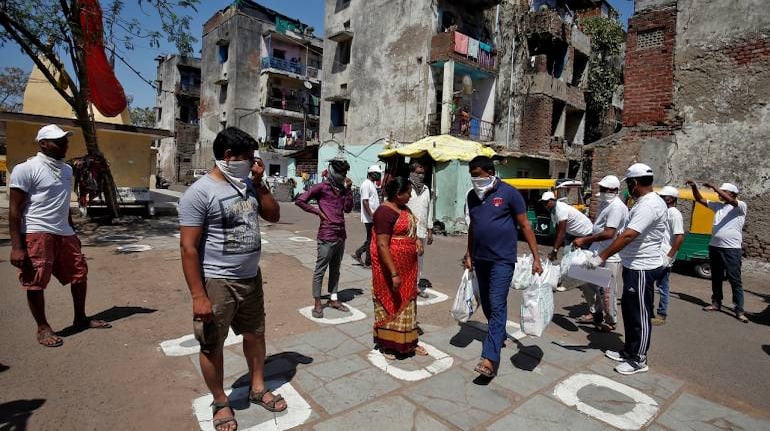



Specifics of the extended lockdown announced by Prime Minister Narendra Modi on April 14 are here. The Ministry of Home Affairs (MHA) on April 15 released a document detailing the dos and don'ts of the lockdown period.
The prime minister extended the lockdown more a "more stringent" phase two till May 3. This 19-day extension comes on the back of the 21-day lockdown which began from midnight of March 24.
As such here are the prohibited activities:
. Travel by air, rail and road
. Operation of educational and training institutions
. Operation of industrial and commercial activities
. Operation of hospitality services
However, PM Modi in his address had said the restrictions would be eased from April 20 for areas that report no new coronavirus or COVID-19 cases.
Pursuant to this, the MHA has issued revised guidelines for the activities that would be permitted from April 20 in identified areas of the country not demarcated as containment zones by states or union territories (UT) or district administrations.
“The objective of the revised guidelines is to consolidate the gains achieved during the phase 1 of lockdown and further slowdown the spread of COVID-19 and at the same time provide relief to farmers and labour and daily wage earners,” the notice said.
Follow our LIVE Updates on the coronavirus pandemic here
The following are activities allowed in non-containment zones from April 20:
. Good transportation: Transportation of goods will be permitted without any distinction of essential or non-essential
. Farming operations: including procurement of agricultural products, agriculture marketing through notified Mandis and direct and decentralised marketing, manufacture, distribution and retail of fertilizers, pesticides and seeds; activities of marine and inland fisheries; animal husbandry activities, including the supply chain of milk, milk products, poultry and live-stock farming; and tea, coffee and rubber plantations are allowed to be functional.
. Industries in rural areas: To provide an impetus to the rural economy, industries operating in rural areas, including food processing industries; construction of roads, irrigation projects, buildings and industrial projects in rural areas; works under MNREGA, with priority to irrigation and water conservation works; and operation of rural Common Service Centres (CSCs) have all been allowed. These activities will create job opportunities for rural labor, including the migrant labor force.
Manufacturing and other industrial establishments: with access control have been permitted in SEZs, EoUs, industrial estates and industrial townships after implementation of SOP for social distancing.
. Manufacture of IT hardware and of essential goods and packaging are also allowed.
. Coal, mineral and oil production are permitted activities. It is expected that the industrial and manufacturing sectors will see a revival with these measures, and will create job opportunities while maintaining safety protocols and social distancing.
. Financial sector: Important conents of the financial sector, e.g., RBI, banks, ATMs, capital and debt markets as notified by SEBI and insurance companies will also remain functional, with a view to provide enough liquidity and credit support to the industrial sectors.
. E-commerce operations: Digital economy is critical to the services sector and is important for national growth. Accordingly, e-commerce operations, operations of IT and IT enabled services, data and call centres for Government activities, and online teaching and distance learning are all permitted activities now.
. Health services: The revised guidelines also permit all health services and the social sector to remain functional; public utilities to function without any hindrance; the supply chain of essential goods to operate without any hindrance; and, important offices of Central and State Governments and local bodies to remain open with required strength.
“In sum, the revised consolidated guidelines are aimed at operating those sectors of the economy which are critical from the perspective of rural and agricultural development and job creation, while maintaining strict protocols in areas where safety is paramount to contain the spread of COVID-19 in the country,” the notice added.
However, activities within the containment zones shall be restricted.
“Keeping the imperative of containing the spread of COVID-19 in the country, National Directives for COVID-19 management have been laid down, which shall be enforced by the District Magistrates through fines and penal action as prescribed in the Disaster Management Act, 2005,” it noted.
As such, in containment zones, no unchecked inward or outward movement of population would be allowed, except for maintaining essential services, i.e., medical emergencies and law & order duties, and government business continuity.
And only essential services are to be permitted in these zones and strict perimeter control and strict restrictions on movement enforced.
“A meeting is being held by Cabinet Secretary with state Chief Secretaries and DGPs to discuss smooth and effective implementation of revised guidelines that were issued earlier,” the notice said, adding that the Principal Secy. to the PM, Union Home Secy and Health Secy. are also present.
All collectors, SPs municipal commissioners and civil surgeons are also participating in the conference being held today (April 15).
Discover the latest Business News, Sensex, and Nifty updates. Obtain Personal Finance insights, tax queries, and expert opinions on Moneycontrol or download the Moneycontrol App to stay updated!
Find the best of Al News in one place, specially curated for you every weekend.
Stay on top of the latest tech trends and biggest startup news.